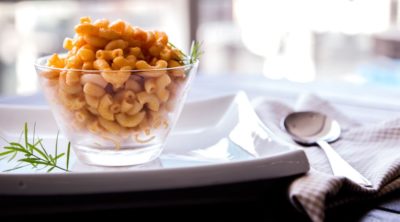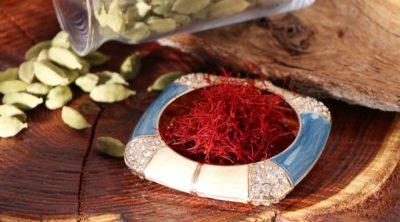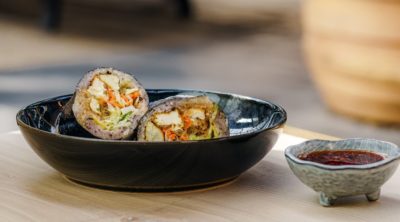
White wine vinegar is a fermentation product of white wine, and can be substituted in cooking with some other varieties of vinegar such as rice vinegar, cider vinegar, and red wine vinegar.
Did You Know?
Vinegar can make it easier to peel a hard-boiled egg. Adding a tablespoon of vinegar to water can also prevent the egg whites from oozing out of the eggs, if they happen to crack while boiling.
Vinegar is basically acetic acid and is obtained from the fermentation of ethanol. It can be prepared from a number of sources like wine, fruit juice, beer, molasses, jaggery, and rice. White wine vinegar is nothing but a variety of vinegar, processed from white wine, with the help of bacterial fermentation. It is mainly used for tenderizing meat, and for making vinaigrettes, stews, soups, and some popular French cuisines, like Béarnaise and Hollandaise sauce.
Red wine vinegar, rice vinegar, apple cider vinegar, champagne vinegar, and balsamic vinegar, are usually considered good substitutes for white wine vinegar. However, it should always be kept in mind that each type of vinegar has its own unique flavor and taste, which is difficult to imitate. White wine vinegar is moderately tangy, while red wine vinegar and balsamic vinegar has a slightly stronger flavor. On the other hand, cider vinegar is more acidic than white wine vinegar.
Substitutes for White Wine Vinegar
Red Wine Vinegar
Both red wine vinegar and white wine vinegar are made from wine and have the same acidity level, for which they are often used interchangeably.
Note
The flavor of red wine vinegar is slightly stronger than white wine vinegar and it can discolor a dish that contains light, pale ingredients. If the color does not matter, then it can be considered a very good substitute for white wine vinegar. Red wine vinegar can be used for making stews, marinades, sauces, and also in vinaigrettes.
White Rice Vinegar
White rice vinegar is made from fermented rice and is less acidic. It has a sweeter and milder flavor and hence, can replace white wine vinegar in many recipes.
Note
White rice vinegar is widely used in Asian dishes, mostly in Chinese and Japanese dishes. In Japan, it is mainly used in salads and sushi rice, while in China, it is used in soups and stir-fries. In Western countries, this vinegar is used for salad dressings, and in some delicate chicken and fish dishes. It can be used in vinaigrettes as well.
Cider Vinegar
Cider vinegar or apple cider vinegar, is slightly more acidic than white wine vinegar and has a fruity flavor. This vinegar is made from fermented apple must.
Note
Substituting white wine vinegar with apple cider vinegar might change the flavor and taste of the dish slightly. With cider vinegar, the taste can become a little bit sour. Cider vinegar is good for making pickles, marinades, stews, and chutneys, but not considered excellent for making vinaigrettes and sauces having delicate flavor.
White Vinegar
White vinegar, also known white distilled vinegar, is stronger and more acidic than white wine vinegar. So, it is better to dilute white vinegar and add a pinch of sugar into it, before using it as a white wine vinegar substitute.
Note
White vinegar is mainly used for making pickles and acidulating water.
Champagne Vinegar
As the name suggests, this vinegar is obtained from the fermentation of champagne. It is known to possess a light and delicate flavor, and is milder than white wine vinegar.
Note
Champagne vinegar is a mild vinegar making it an excellent substitute for dressing flavorful salads and vegetables, and can be used in spaghetti and marinara sauce as well. It can be an awesome marinade for chicken and fish, when mixed with olive oil, spices, and seasonings. Champagne vinegar can also be combined with nut or truffle oil to make vinaigrettes.
Balsamic Vinegar
It is made from the concentrated juice of fresh white grapes, and has been prepared and used in Modena and Reggio Emilia of Italy since the middle ages. This vinegar is dark brown-colored, and has a sweet and fruity flavor.
Note
The traditional balsamic vinegar is very expensive and is highly valued for its unique flavor. It can be used in dips, steaks, pastas, risottos, and vegetables dishes. It is excellent for marinades, sauces, salad dressings, and for seasoning grilled meat, fish and eggs, but not suitable for pickling and the herb infusion process.
While substituting white wine vinegar, it is important to consider its role in a particular dish, i.e., whether it is used to provide a specific level of acidity, to lend a tangy flavor or just to give a sweeter or milder taste to the dish. If a tangy flavor is needed, then diluted lemon or lime juice can also be used as a substitute, if you think the recipe can handle its citrus flavor.
For dishes, the color matters a lot and so, a light-colored vinegar, like rice vinegar or cider vinegar, is preferred to substitute white wine vinegar. The differences in acidity and flavor among the different varieties of vinegar also need to be considered, while substituting white wine vinegar.








